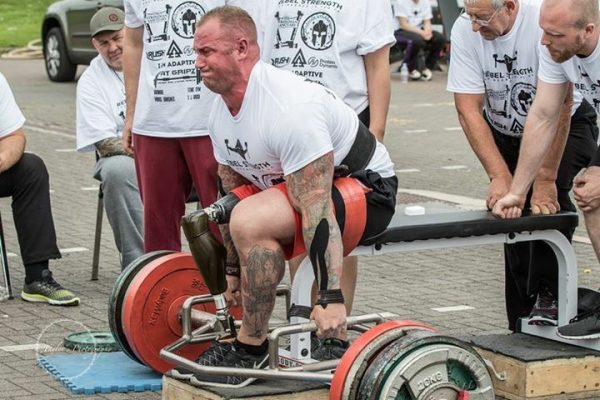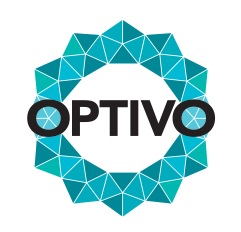
Mark Smith, Superhuman
Smith Served with the 1st Battalion Grenadier Guards in a career that saw him travel the globe. After a serious injury and rehabilitation he became a strongman and is currently preparing to launch his own disabled strongman competition, appropriately called, The Superhumans. He spoke with Civvy Street about his journey, back from the brink.
Are you able to describe your injuries?
I was shot on a live firing compound clearance range. I took a few rounds to my right leg and one to my right shoulder. The rounds to my right leg hit my femoral artery which resulted in the loss of my leg – and I’m now missing part of my shoulder. I ‘died’ in the helicopter on the way to hospital and I died again on the operating table and then, 27 operations later, I’m where I am now.
I’m probably, sort of, physically better than ever. I would argue that I’m fitter and healthier now as an amputee than I was even when I was in the Forces.
I now compete in Disabled Strongman, so we pull trucks, lift Atlas stones, logs, we deadlift cars, all that sort of stuff that you would see the able bodied pros doing. I won Britain’s Strongest Disabled Man this year and last year, and I also won, the Arnold Classic in Ohio in the United States back in March. And I recently finished fourth at the World’s Strongest Disabled Man.
Was becoming a strongman something you did post-injury, or were you interested in the sport before you were injured?
I knew quite early on, in hospital, that I wanted a physical challenge. I lost a hell of a lot of weight in hospital. I dropped to around about nine stone so I didn’t look particularly well in hospital; mainly due to being nil-bymouth so often, and then even, when I wasn’t due an operation, the metallic taste from the morphine meant that I didn’t really want to eat anyway.
I think I sort of thrive off the challenges and especially physical ones. When I was discharged from the Forces I went into body building.
It was just because I wanted to see if I could get back to some sort of condition. It’s also a big confidence boost to step on stage, you know, and to be judged and viewed as someone with the three limbs on the body that I’ve got left, rather than the one leg that I’m missing.
Once I’d sort of ticked that off I competed a few times. I was still training with other people, and they’d started to comment on my strength. A lad that runs Britain’s Strongest Disabled Man, had invited me down for a taster session. A chance to go down to Kent, try some of the events, try some truck pulling, to Atlas stones, log pressing and so on. I was a bit sceptical at first because being an above knee amputee, means that I compete in the seated class, which means most of the events you do are in a wheelchair.
I suppose being from the Military you’ve got a lot of pride. The wheelchair was almost like a sort of badge of defeat. I thought, ‘I don’t really want to do a sport that involves me sitting in a wheelchair’, but I got talking to the lads and there was a similar sort of sense of humour, similar sort of camaraderie to being in the Forces, and I loved it. I loved all of the events, and made the decision to compete. I found out that the ‘Britain’s’ was only six weeks away so I didn’t think I would do well to be honest. I just thought I’d use it for a bit of experience and so my first competition was the Britain’s last year – and I went and won it! I’ve been hooked from there really.
Did you ever consider a Paralympic route into, say, powerlifting?
I don’t think that the Paralympics or the Invictus route gives a chance to compete often enough, and it doesn’t have enough variation for me. I like that in strongman you have to be a good all-rounder; you have to be good at pressing overhead, you have to be good at pulling, you have to be good at endurance holds. It’s like a decathlon, you know, you have to be a jack of all trades. I like that, and I liked that I could travel the world like I did in the Forces. The Paralympic sports never really appealed to me: you turn up to a powerlifting competition, you do three bench presses, and that’s you done.
When you were getting into body building and strongman, was it entirely for you, or was there part of you that wanted to show others what was possible?
When I was at Headley Court there were a lot of Grenadier Guards there as well, and being a Lance Sergeant, I felt like I still had a role so I had to lead by example. In my mind, same as when you’re on operations and stuff, if they see you up and about and active and pushing yourself, that that will rub off on them, and it’s been the same with my two little boys. I wanted to show them that it doesn’t really matter what happens to you, you have to just, sort of, you know, crack on.
When I’m on my death bed I hope that I can say: “I’ve really made the most of the second opportunity I had at life”.
Strongman is the ultimate sort of defiance of your amputation. It’s the one thing that everyone in that hospital, especially with how ill I looked, would never have said I would be able to do.
Tell me more about The Superhumans…
I’ve been to watch the pros in Manchester and in Ohio, and you see the backing they’ve got, you see the crowd, the TV cameras and stuff.
So this is a showpiece for the sport. Normally competitions are open entry but if we’re really going to show our sport off I want the best blokes in the world to come and compete. I want the blokes who I know are going to impress the crowd, and who I know can really go heavier than perhaps what we’ve done in the past.
You know, we’ve competed in sports halls and carparks, and I just think it’s so much bigger than that. It just needed someone to sort of go, you know what, I’ll take the risk. It’s about growing the awareness of our sport, letting other disabled Veterans, other disabled people in general know that it exists, so that it’s another avenue for them should they wish to get into the sport. It’s just about trying to inspire. I’m hoping there will be plenty of disabled children there to see us.
So yeah, I thought it was worth seeing if the interest is there and thankfully all of the blokes I’ve invited that I really wanted to come, are coming. I’ve got people coming from Norway, Sweden, Iceland, Australia and America. We’ve got Veterans from America and the UK, we’ve got blind lads, lads with spina bifida, arm amputations and leg amputations. So I think it will have a big impact.



